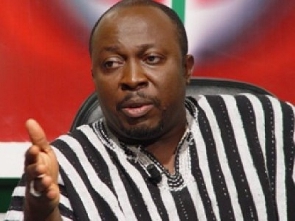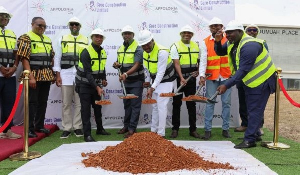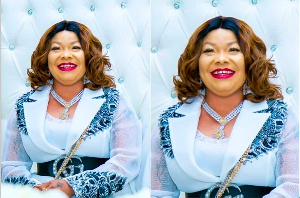My recent treatise on our national ethos ended with a reminder of an army of ugly facts marching through our daily national experience. These were the boring indices of malnutrition, infant mortality, maternal mortality and the resultant lowered life expectancy which we embrace with an air of acceptability or sometimes resignation. In 50 years, we have barely begun the task of true sustainable development. For decades we have engaged in a self –serving mythological analysis of our situation. Our self-evaluation is often bereft of any objectivity, clearly defined targets and lacking in real accountability to sustain our efforts.
An evaluation of our national resources, conjures images of gold, golden pods, diamonds, bauxite, manganese etc. and more recently the billions of $$ sent annually in “remittances” from our fellow “country people” in the emigration quandary, also known colloquially as “voluntary slavery”. This phenomenon is not unique to Ghana though other Southern nations so afflicted, have developed policies to benefit themselves without impeding the flow of voluntary taxes paid by their overseas or global citizens. The nation’s greatest assets are embodied in its citizens within its geographic borders and those within their virtual borders, all over the world. Our challenge as a nation is to evaluate all our human capital and plan to derive the greatest sustainable advantage over the next 25-year development horizon. The constitution must guarantee the same rights and responsibilities to all its citizens irrespective of their country of residence at any given time; otherwise we effectively have a constitutionally supported apartheid policy in our own country.
Our history is replete with so many development plans which until recently, have been crafted without an adequate analysis of our true population dynamics and the relevant actuarial projections. Our population growth rate is just under 3%, with a down trend in the fertility rate which stands at 4.4 chn/woman of child bearing age. Forty-five percent of the population is aged between 15-24 years. In the year 2000 there were 79 people dependent on every 100 workers, indicating a high dependency ratio. For decades a lot of political lip service has been paid to “children’s issues” to signal a caring and compassionate officialdom. The fact that the millions of faceless children represent our economic future is truly lost on most policy makers. The first right of a citizen is an expectation of longevity and a good quality of life in the context of productivity in one’s personal and national interest.
Political and civic rights of citizenship are more often highlighted against social citizenship and the responsibilities of the same. The life of Citizen Kofi who was 6 years old at independence, differs greatly from that citizen Fatima who was 6 years old in 1979 and likewise citizen Yao who turned 6 in 1998. These hypothetical citizens are 55, 36 and 14 respectively. The 55 year old was fortunate enough to have “free” university education and is now faced with the fact that the right to an adequate pension is not guaranteed by his Ghanaian citizenship. Citizen Fatima now 36, knew only arbitrary government in her formative years and is now becoming familiar with democratic discourse, albeit in its raw form. Political opponents refer to each other as enemies and leaders of political parties raise the spectre of their parties “ruling” forever after democratic elections, as if we live in a feudal medieval state.
As emotive as the issues may be, they are now being discussed. Blows may fly at some party meetings and conventions but that is an indication of how far we have to climb on the ladder to a truly just and civil society. Fatima may find the courage to become engaged in the political process or may leave as some of Kofi’s peers did to try their luck elsewhere. The 14 year old Yao has lived through 8 years of multi-party democracy and is uncontaminated by arbitrary arrests, disappearances and “--it-bombings”. What a near idyllic political life! Will it get better for Yao or worse? His older brother is having his university fees paid by an uncle in Norway. His mother had “free” university education. What will his prospects be for health, education and employment? What is a citizen to expect and what can the nation truly expect from him in the future? What investment did the state make in these individuals when they were young?
Currently, we are told that 50% of the state’s internally derived revenue pays salaries of government employees. Not much is left for every duty a government owes its citizens. Our economy is still largely pre-industrial and true commercial agriculture and food self-sufficiency is yet to sail to port. There is no culture of investment in the life of the ordinary Ghanaian outside of limited Social Security for public sector employees. Most would jump to poverty as the reason for the dearth of an investment culture in Ghana. The problem is more complex than that. The Nobel Prize winning Grameen Bank and others like it have demonstrated that poverty in itself is no barrier to full participation in the financial system. In order to raise capital for investment in our citizens, we must attach the idea of investing to already present cultural ideals and values like children and education. Every family wishes the best for its children and most Ghanaians still recognize that education is the most reliable path to a brighter future with greater opportunities for success and individual autonomy. We should not only think outside the box, we must throw the box away. We must find the political will to seek answers to our problems from within ourselves. Our development policies must transcend relationships with donor countries. First it was the Paris Club, now China beckons and all African heads of state arrive in Beijing with the outstretched hands of perennial recipients.
True national development must guarantee upward mobility for citizens and thus reduce poverty from generation to generation. National development is a “life course” issue, not a matter of improving everyone’s lot today as some of our politicians view it. True development must be “citizenry development” in which human capital accumulation is a public priority. This begins with children. A concerted child focus is the “sine qua non” of sustainable national transformation, if we are to become a knowledge based productive and competitive society. Even poor families invest in their children. So should the state, for the future truly belongs to them and we should help them shape it to their maximum advantage.
Ghana should institute an early childhood investment program in the 0-5 year old group. All families, irrespective of financial status would be encouraged to establish investment accounts which are matched by government funds and invested over the long term. The ratio of the match is less important than the partnership between the state and its future. There could be accounts primarily for secondary or university education. It could take numerous forms but the concept and its universality are crucial to implanting the seeds of a broad-based capital market with the involvement of ordinary citizens. This will create an incentive for parents to begin planning much earlier for their children’s education and future. An initiative like this would attract more funds from Ghanaians abroad to invest directly in the future of the country through their children, nieces, nephews’ grandchildren and others. This would potentially generate investment capital for supporting other needs such as a bond market. Most important in all of this would be the contagion effect over time which would grow to involve other investment habits among the population in general. Other positive dimensions including tax incentives and improved identification and location of citizens for the purpose of general revenue collection would arise from this. This is a conceptual proposal and no attempt is made to present a fully designed program.
We are reminded that a well educated and skilled citizenry is the surest guarantee of a sustainable future. We must overcome our past failures, learn from them and rely more on our own human capital to secure a brighter national future. We must invest earlier in our citizens to ensure that all the rights and responsibilities of citizenship are fully expressed and protected. This way our children will own the future of Ghana.
“There one only two lasting bequests we can hope to give our children. One of these is roots, the other wings.” - Hodding Carter II















